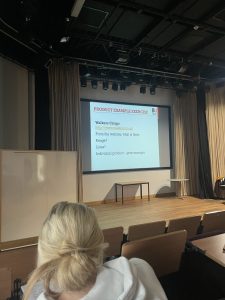Embarking on a journey as an international student, I immersed myself in two distinct worlds of education: the United Kingdom and India. The contrasts in teaching styles and grading systems between these two countries have offered me invaluable insights into diverse approaches to learning.
In the UK, education focuses on fostering critical thinking and independent learning. The teaching style revolves around interactive discussions, debates, and group projects. Professors act as facilitators, encouraging students to voice their opinions and explore different perspectives. We even get support from AskBu or professors as international students when we struggle through Units or exams. This approach not only nurtures a deeper understanding of the subject but also hones crucial skills like problem-solving and effective communication. The emphasis on self-directed learning has been empowering as I learned to take charge of my academic journey.
On the other hand, my experience in India introduced me to a more structured and teacher-centred approach. Here, lectures are often delivered in a didactic manner, with professors imparting knowledge through comprehensive presentations. While this method provides a strong foundational understanding, there is less room for open discussions and student engagement. Additionally, the emphasis on rote memorisation, especially for standardised tests, was an aspect I had to adapt to. The hierarchical nature of the classroom in India, where the professor’s word is unquestioned, contrasts with the collaborative atmosphere in the UK.
Grading systems also differ significantly. In the UK, the assessment is continuous and varied, comprising essays, presentations, and exams. This holistic approach encourages consistent effort throughout the term and assesses both theoretical understanding and practical application. In India, the academic year often culminates in high-stakes exams determining a significant portion of the final grade. While this can be stressful, it also teaches resilience and the art of managing pressure effectively.
Adapting to these diverse systems has enriched my learning experience. The UK’s approach has enhanced my critical thinking and communication skills, while India’s emphasis on in-depth knowledge has reinforced the value of a strong foundation. Engaging with both systems has allowed me to develop a versatile learning style that combines the best of both worlds.
In conclusion, my journey as an international student has unveiled the beauty of educational diversity. The UK’s emphasis on independent learning and holistic assessment, contrasted with India’s structured teaching and rigorous examination systems, have both contributed uniquely to my growth. As I continue to navigate these educational landscapes, I am reminded that there is no “one-size-fits-all” approach to learning. Instead, the blend of these experiences has shaped me into a well-rounded learner, prepared to thrive in an interconnected global society.



 Budgeting – A Student’s Financial Life-hacks
Budgeting – A Student’s Financial Life-hacks LLM in Intellectual Property Law and My Experiences
LLM in Intellectual Property Law and My Experiences Winter in the UK and all the things it brings
Winter in the UK and all the things it brings








